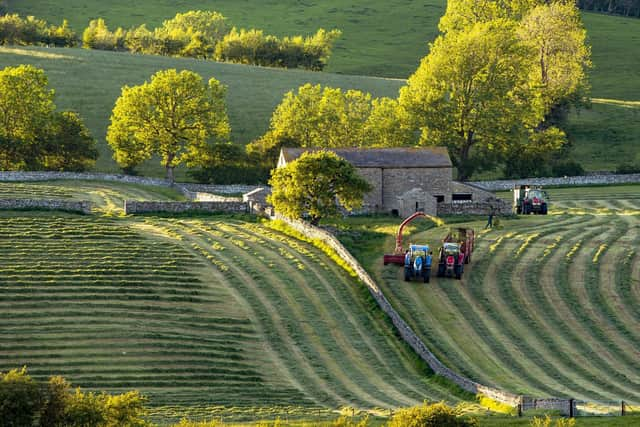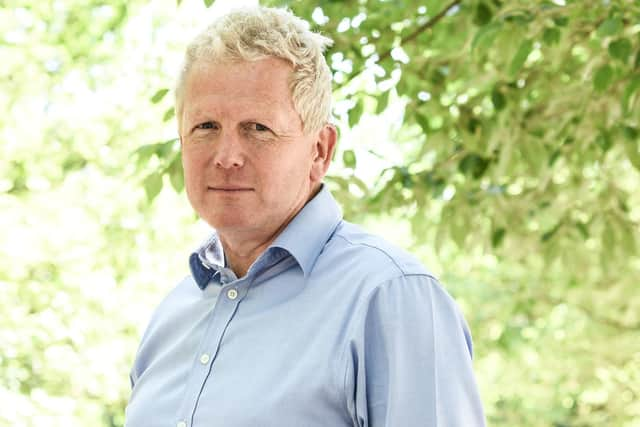Why all the political parties need to start paying attention to rural communities - Tim Bonner
The cost-of-living crisis that is affecting rural communities as deeply as any part of the country and Yorkshire as hard as any other county and it will be in marginal constituencies in the county with significant rural elements such as Keighley, Don Valley, Calder Valley, and Peniston and Stockbridge where the next election will be won and lost.
The huge rise in fuel prices has had a particularly devastating impact on rural communities. Public transport in the countryside is increasingly rare and often there is little choice other than to drive to access essential services which means that there has been no way that many rural people have been able to avoid the steep rise in the cost of a tank of petrol or diesel.
Advertisement
Hide AdAdvertisement
Hide AdMeanwhile government support for energy bills is focused on those on the mains gas grid. However, there is much less support for those four million households, the majority of which are in rural areas, who use oil and other fuels to heat their homes and are required to pay upfront. These households have seen prices rise by more than 90 per cent year on year. The Fuel Bank Foundation has found that 1,000 litres of oil now cost on average £937.16, compared to £480 in March last year.


Unlike electricity and mains gas supply, which are regulated and offer consumers a level of price and supply protection, the alternative fuel market is currently unregulated, leaving consumers exposed to higher fuel costs, with oil prices fluctuating daily.
These are the key issues facing people across rural Britain that Rishi Sunak, Liz Truss and politicians of other parties need to engage with.
There was a lot of talk after the 2019 General Election about the ‘red wall’, but not enough recognition that many of those seats across the North of England and Wales which went from Labour to Conservative were rural. It has become increasingly clear that rural communities are as important as any group in the country in deciding which party forms the next government.
Advertisement
Hide AdAdvertisement
Hide AdAs the Fabian Society has pointed out, and as the Alliance emphasised in our own report on Labour’s rural problem ‘The Elephant in the Countryside’, the route to 10 Downing Street for a Labour leader has to go through the countryside.


It is rural constituencies that will be the battle ground at the next election.
Meanwhile, the Liberal Democrats are working hard to re-establish their historical position as a party of the countryside and are eyeing up rural constituencies.
As the Conservative Party ponders its next leader and its new direction, it should therefore be thinking very carefully about its approach to the countryside. At times in the last few years, it has seemed that the interests of rural people have been seen as entirely secondary to ‘eye catching’ environmental and animal welfare policies.
Advertisement
Hide AdAdvertisement
Hide AdNo one, no one sane anyway, is denying the urgent need to address climate change and biodiversity decline, but that can never be separated from rural policy. Thriving rural communities are the solution to the challenges facing our environment, not the problem.
With the context of the ongoing Conservative leadership election in mind, but in an invitation open to all political parties, it is high time the Government accepted that the needs of rural communities must be championed by a designated figure who can echo the rural voice within the corridors of Whitehall.
We are asking for a Rural Champion, a person appointed on merit by the Government with a demonstrable understanding of rural life. Someone who has the power and support of Number 10 but sits outside of government.
They should have oversight across all departments, but the power to call out policy which serves no real purpose or benefit to rural people or that which undermines the working practices of our countryside.
Advertisement
Hide AdAdvertisement
Hide AdAn advocate who will challenge misinformation and bias and one who will support the countryside as our farming community shifts its whole operation post-Brexit. Crucially, as we enter the greatest cost of living crisis in a generation, they will have the ambition and vision for the countryside that sees our communities not just survive but thrive.
Tim Bonner is chief executive of the Countryside Alliance
Comment Guidelines
National World encourages reader discussion on our stories. User feedback, insights and back-and-forth exchanges add a rich layer of context to reporting. Please review our Community Guidelines before commenting.